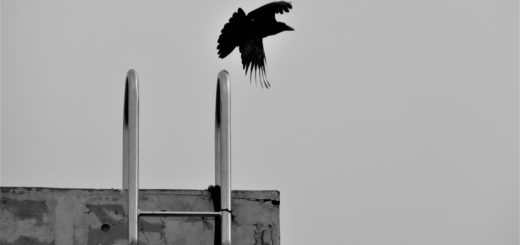The Crowd
My attitude toward the crowd is neither sympathy nor a craving to be understood, but rather retreat: to my privacy, to my separate space, to the few companions whom I can teach or from whom I can learn, to the rare authors (nearly all dead) who deepen my intellect, to my developmentally beneficial errors and failures, to my unanswered questions, and to the barely noticeable wisps of eternity that sometimes swirl past me for a moment, and which, if they are not to be overlooked entirely, require all the attention and sensitivity of one for whom the public chatter has receded to near-oblivion.
Gazing after shows, the diversions of the stage, farms well stocked with flocks and herds, contests for victory in the field are all much the same. So, too, a bone thrown to puppies, fish scrambling for a bait, ants laboriously carrying a grain of wheat, mice frighted out of their wits and running away, puppets danced upon a wire. And in the midst of them a wise man must be good-humoured, and not grow haughty in the contemplation. Remembering, notwithstanding, that the true worth of a man is to be measured by the objects he pursues. (Marcus Aurelius, Meditations, Book VII §3, Jeremy Collier translation, London: Walter Scott, 1887, pp. 105-6.)
The man who wrote those words, of course, had the peculiar advantage of being largely free from the imperative to pursue many objects at all, let alone the spiritual challenge of being daily immersed, against his will, in the crowd’s mind-obliterating noise. Nonetheless, his point stands: a man must be measured by the objects he pursues. And this is all the more so — albeit more difficult to discern — in the case of men who, unlike an emperor or emperor-in-waiting, are trapped by practical necessity amid many pursuits of dubious inherent worth. The standard-setting question for the rest of us, then, is not simply “what objects we pursue,” but rather how our souls stand in relation to those objects we may feel compelled, by needs of basic self-preservation, to pursue. That is to say, what is the hierarchy of our ends, is this hierarchy consistent with the ultimate good of our nature, and, perhaps most in keeping with the spirit of the great emperor’s dictum, have we developed sound habits of judgment in determining which objects have any true place in the soul’s rational hierarchy, and which are illusory distractions or sirens?
For non-emperors, the haughtiness against which Marcus warns is not a realistic option in this context. Rather, it is essential to maintain the humility of the frail and flawed creature of needs, at least to the extent required to be permanently vigilant in the face of practical life’s endless false objects — those pursuits which present themselves to us as legitimate means to an end, but are in fact wrong turns, or even trap doors.
But where the risk is greater, so too is the glory, and Marcus, the ruler of the world, lacked one necessary condition of a true philosophic life: practical inefficacy or deficiency, which is to say personal and political limitations. A fully philosophic soul lives in exile from his time and place, in one way or another. An emperor is the least limited and excluded of all men, in the sense relevant to the development of the philosophic mind. Hence, his noble aloofness came somewhat too easily, demanding only that he wrestle with the desires of a man who could literally have anything. “Only that?” you reply, ironically. Yes, only that. It is the man who cannot have everything — who perhaps can have very little of anything — who must, for that reason, overcome all those temptations which Marcus Aurelius merely regards with an easy disdain bordering on haughtiness.



